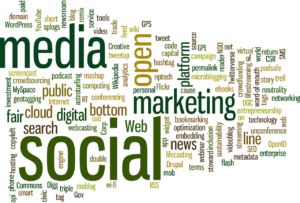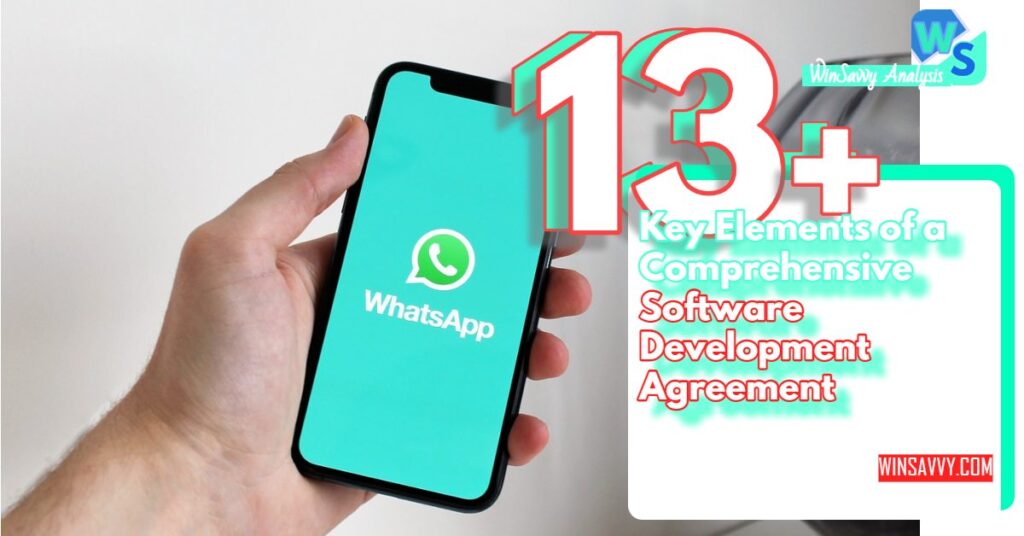Marketing automation has become an essential tool for businesses looking to scale their marketing efforts and improve customer engagement. By automating repetitive tasks and streamlining marketing processes, companies can focus on creating targeted and personalized campaigns that drive results.
This article will take a deep dive into 19 of the best marketing automation software on the market, comparing and reviewing their features, pricing, and ideal use cases to help you choose the right platform for your business needs.
If you do not know what to look for, when choosing a marketing automation software, read our article on what we consider when choosing a marketing automation tool for our clients.
#1. HubSpot Marketing Hub
HubSpot Marketing Hub is part of the larger HubSpot ecosystem, a renowned inbound marketing, sales, and customer service platform. Founded in 2006, HubSpot has grown into a market leader, providing businesses with a comprehensive suite of tools to create and manage effective marketing campaigns.
Key features and benefits
- Comprehensive inbound marketing tools: HubSpot offers a wide range of features, including email marketing, social media management, SEO, landing pages, and content creation tools.
- Lead nurturing: HubSpot’s robust lead nurturing capabilities allow you to create personalized email sequences and workflows to guide prospects through the buyer’s journey.
- CRM integration: HubSpot Marketing Hub seamlessly integrates with the company’s CRM, providing a unified view of your contacts and their interactions with your brand.
- Reporting and analytics: The platform offers in-depth reporting and analytics to help you track your marketing performance and make data-driven decisions.
Related Reads:
- Create a buyer persona for your business in 6 Steps
- What is Psychographic Marketing and how to use it for your business?
- Lead Generation for B2B: The Entire Process Explained!
- Lead Generation on LinkedIn: The Definitive Guide
Pricing and plans
HubSpot Marketing Hub offers a free plan with limited features, as well as three paid plans: Starter, Professional, and Enterprise. Pricing ranges from $50 per month for the Starter plan to $3,200 per month for the Enterprise plan, with additional costs for optional add-ons.
Pros and cons
Pros:
- Comprehensive suite of marketing tools;
- CRM integration;
- Excellent reporting and analytics capabilities;
- User-friendly interface and extensive support resources.
Cons:
- Can be expensive for small businesses;
- Limited customization options for email templates and landing pages;
- Some features may require additional setup and integration.
Ideal use cases and target audience
HubSpot Marketing Hub is best suited for small to medium-sized businesses that require a comprehensive marketing platform with CRM integration. It’s especially beneficial for companies that follow an inbound marketing approach.

At Businessmap, we fully harness the potential of HubSpot for our entire suite of marketing automation. The software’s holistic capabilities, ranging from content management to SEO, and its seamless integration with our CRM system are among the reasons for choosing HubSpot.
We automate numerous processes: managing email campaigns, analyzing website traffic, compiling marketing insights, and more. One unique way we use HubSpot is by implementing an automated workflow system that adapts to customer interaction data – the software can modify our approach in real-time based on user behavior tracking.
While HubSpot excels across various areas, one use-case where it outshines others is its lead scoring feature. By tracking user interaction and automatic scoring, it simplifies the process of identifying high-quality leads, giving us a richer perspective on our prospective clients.
My top tip for maximizing the benefits of HubSpot would be to fully utilize its analytics capability. Pair your marketing automation efforts with detailed data analysis; this gives a granular understanding of your audience and allows you to refine your strategies in real-time.
Furthermore, take time to master the software’s vast features; it’s an investment that yields significant returns in terms of marketing efficiency and audience engagement.
Pavel Naydenov, Head оf Marketing at Businessmap

As the General Manager of DesignRush, I rely heavily on the power of marketing automation to drive our business growth and efficiency. We use HubSpot for its comprehensive, all-in-one feature set and ease of use.
From email marketing and social media management to CRM and analytics, it offers an integrated toolbox that aligns with our marketing needs. For instance, we automate our email newsletter process with Hubspot.
Its feature of segmenting audiences based on behavior and interaction allows us to send personalized content to different user groups, improving user engagement and conversion rates.
One area where I find Hubspot stands out from other tools is its stellar CRM integration. The bridge it creates between marketing and sales streamlines lead nurturing and conversions, creating a smoother workflow that has translated into significant time and cost savings for us.
If I were to recommend any tips, I would suggest leveraging the power of personalization within mass outreach. By utilizing detailed customer personas, segmentation, and customized communication, you can improve your engagement rates and overall marketing results significantly.
Gianluca Ferruggia, General manager at DesignRush

As the founder and CEO of DealA.com, an online savings platform, I oversee numerous marketing initiatives, all of which benefit significantly from efficient automation.
We utilize HubSpot for our marketing automation needs due to its comprehensive suite of tools and intuitive design. One of our core strategies at DealA involves leveraging HubSpot to manage multi-channel marketing campaigns seamlessly.
This grants us the ability to engage with our audience via Email, SMS, and social media through a unified platform. HubSpot’s superiority becomes evident in its advanced segmentation capabilities, enabling us to craft personalized messages by categorizing our audience based on their behaviors, preferences, and purchase history, thus enhancing the relevancy and impact of our communication efforts.
For those new to HubSpot, I highly recommend taking full advantage of its A/B testing functionality. This feature has been indispensable for us in refining our campaigns and pinpointing what truly resonates with our audience, subsequently boosting engagement and conversion rates.
Additionally, becoming proficient with HubSpot’s analytics dashboard is crucial. It delivers comprehensive insights, empowering us with the data needed for ongoing optimization and betterment of our marketing strategies.
Oleg Segal, Founder and CEO of DealA.com

One of our big initiatives across our business has been to reduce our overhead and cybersecurity vulnerabilities by reducing the total number of software platforms we’re using across our business.
Our ideal goal is for our employees to need only a single login to access everything they need to do. This is why we’ve switched to HubSpot for our marketing automation efforts. It brings our entire marketing platform together on a single platform.
While learning all of the ins and outs of the platform has been a challenge and it’s definitely not the cheapest platform out there, we’re making up for it in efficiency now that we’re up and running with it.
Nick Valentino, VP of Market Operations of Bellhop Atlanta Movers
#2. Marketo Engage (by Adobe)
Marketo Engage, now part of the Adobe Experience Cloud, is a powerful marketing automation platform designed for enterprise-level businesses. Founded in 2006, Marketo has become a leader in the marketing automation space, offering a robust suite of tools for lead generation, engagement, and analytics.
Key features and benefits
- Advanced lead management: Marketo Engage offers robust lead management capabilities, including lead scoring, nurturing, and segmentation.
- Multi-channel marketing: The platform supports email, social media, web, mobile, and event marketing, allowing you to create consistent and personalized experiences across channels.
- Account-based marketing: Marketo Engage provides tools for account-based marketing (ABM), helping you target and engage high-value accounts. (Related Reads: 9 Best Account-Based Marketing Software Compared!)
- Integration with Adobe Experience Cloud: Marketo Engage integrates with other Adobe products, such as Adobe Analytics and Adobe Campaign, for a more comprehensive marketing solution.
Pricing and plans
Marketo Engage offers four pricing tiers: Select, Prime, Ultimate, and Enterprise. Pricing is not publicly available and must be requested through a custom quote.
Pros and cons
Pros:
- Comprehensive marketing automation features;
- Powerful lead management capabilities;
- Support for account-based marketing;
- Integration with Adobe Experience Cloud.
Cons:
- Pricing can be expensive for small businesses;
- Steeper learning curve compared to other platforms;
- Limited native CRM integration.
Ideal use cases and target audience
Marketo Engage is best suited for medium to large-sized businesses, particularly those with a focus on account-based marketing or a need for deep integration with the Adobe Experience Cloud. It’s a great choice for companies seeking advanced marketing automation features and lead management capabilities.

As the Marketing Director, we utilize Marketo for its robust marketing automation capabilities, including lead management, email marketing, and analytics. Marketo’s comprehensive features enable us to orchestrate personalized and targeted campaigns at scale, enhancing customer engagement and conversion.
To maximize its potential, we recommend leveraging Marketo’s lead scoring to prioritize leads, utilizing dynamic content for tailored messaging, and integrating with CRM systems for seamless data synchronization. Additionally, implementing A/B testing and leveraging Marketo’s reporting tools are instrumental in refining marketing strategies and driving impactful results.
#3. Salesforce Pardot
Pardot, a marketing automation solution offered by Salesforce, is designed to help businesses generate more leads, close deals faster, and maximize their marketing ROI. Launched in 2007, Pardot has become a popular choice for businesses of all sizes, thanks to its seamless integration with Salesforce CRM and robust set of marketing automation features.
Key features and benefits
- Lead generation and nurturing: Pardot offers a wide range of tools for lead generation, scoring, and nurturing, helping you prioritize and engage your most valuable prospects.
- Email marketing: Pardot’s email marketing tools enable you to create personalized and targeted email campaigns that drive engagement and conversions.
- Landing pages and forms: Pardot provides an intuitive drag-and-drop builder for creating landing pages and forms, making it easy to capture leads and grow your email list.
- Salesforce CRM integration: Pardot’s tight integration with Salesforce CRM allows for a unified view of your leads and customers, improving collaboration between sales and marketing teams.
Pricing and plans
Pardot offers three pricing plans: Growth, Plus, and Advanced, starting at $1,250 per month for the Growth plan. Each plan comes with different feature sets, allowing you to choose the option that best fits your business needs and budget.
Pros and cons
Pros:
- Seamless integration with Salesforce CRM;
- Comprehensive lead management and email marketing tools;
- User-friendly interface and easy-to-use drag-and-drop builder.
Cons:
- Can be expensive for small businesses;
- Limited native integrations with other tools and platforms;
- Some advanced features are only available in higher-priced plans.
Ideal use cases and target audience
Salesforce Pardot is a great fit for businesses of all sizes, particularly those already using Salesforce CRM or looking for a marketing automation platform with robust lead management and email marketing capabilities. It’s ideal for organizations that want a seamless sales and marketing solution.

We use Pardot as an effective marketing automation software from the very start, for the smooth functioning of marketing workflows. This tool manages customer interactions and personalizes communications based on consumer behavior and preferences.
The AI-driven predictive analytics in Pardot help us to forecast trends, understand customer behavior, and optimize marketing strategies. We also use Pardot’s AI-powered chatbots in customer service and marketing.
It enables marketers to deliver tailored content, product recommendations, and website experiences based on user behavior and preferences.
One of the main advantages of Pardot is providing deeper insights into consumer behavior. They allow us to make data-driven decisions and refine their strategies for better targeting and engagement.
AI algorithms predict future trends and customer preferences, which helps in forecasting demand, optimizing inventory and creating proactive marketing campaigns.
They allow marketers to focus on strategy while improving efficiency. Its AI-driven image and video recognition technologies make it easy to analyze visual content, understand sentiment, and optimize visual-based marketing campaigns.
Amit Raj, Founder at The Links Guy
#4. ActiveCampaign
ActiveCampaign, founded in 2003, is a powerful marketing automation platform that offers a unique blend of email marketing, CRM, and automation tools. With a focus on helping businesses create personalized and targeted customer experiences, ActiveCampaign has become a popular choice for small to medium-sized businesses looking for an affordable yet feature-rich marketing automation solution.
Key features and benefits
- Email marketing: ActiveCampaign offers a range of email marketing tools, including a visual email designer, campaign templates, and advanced segmentation capabilities.
- Marketing automation: The platform’s automation features allow you to create personalized workflows and sequences, automate follow-ups, and trigger actions based on customer behavior.
- CRM and sales automation: ActiveCampaign includes a built-in CRM and sales automation tools, helping you manage your contacts, deals, and tasks in one place.
- Reporting and analytics: ActiveCampaign provides in-depth reporting and analytics to help you track the performance of your marketing campaigns and make data-driven decisions.
Pricing and plans
ActiveCampaign offers four pricing plans: Lite, Plus, Professional, and Enterprise, starting at $9 per month for the Lite plan. Each plan includes a different set of features, allowing you to scale your marketing efforts as your business grows.
Pros and cons
Pros:
- Affordable pricing for small businesses;
- Comprehensive email marketing and automation features;
- Built-in CRM and sales automation tools;
- Easy-to-use interface.
Cons:
- Limited native integrations with some third-party tools;
- Advanced features and support are only available in higher-tier plans;
- Email template designs may be limited compared to other platforms.
Ideal use cases and target audience
ActiveCampaign is an excellent choice for small to medium-sized businesses that require a marketing automation platform with built-in CRM and sales automation capabilities. Its affordability and ease of use make it an attractive option for businesses just starting out with marketing automation.

We’ve integrated ActiveCampaign into our marketing stack because of its exceptional automation capabilities combined with a strong focus on customer experience. It bridges the gap between email marketing, automation, sales automation, and CRM in a way that perfectly suits a SaaS company like Toggl, looking to provide personalized experiences at every customer touchpoint.
ActiveCampaign lets us automate personalized follow-ups with users who’ve interacted with our support or sales teams. Based on the nature of their inquiry, they’re enrolled in specific email sequences that provide additional resources, ask for feedback, or offer assistance with other products like Toggl Plan, ensuring a cohesive and customized user experience.
Is there any specific use-case where the tool performs better than other marketing automation tools?
ActiveCampaign’s unique selling point is its CRM functionality combined with advanced email marketing automation. This hybrid approach is particularly effective for SaaS companies looking to maintain a high level of engagement with their customers throughout the customer lifecycle.
Are there any tips / tricks that you would recommend when using the tool?
For those using ActiveCampaign, I recommend integrating your customer support and sales data into the platform. This allows you to automate follow-up emails based on specific interactions, ensuring that your communication is always relevant and timely, thereby increasing customer satisfaction and loyalty.
#5. Mailchimp
Mailchimp, founded in 2001, began as an email marketing platform but has since evolved into an all-in-one marketing solution for small businesses. With a focus on user-friendly design and powerful marketing tools, Mailchimp is a popular choice for businesses looking for a comprehensive marketing platform without a steep learning curve.
Key features and benefits
- Email marketing: Mailchimp offers a wide range of email marketing tools, including pre-built templates, a drag-and-drop email builder, and advanced segmentation options.
- Automation: Mailchimp’s automation features help you streamline your marketing efforts, create personalized customer journeys, and automate follow-ups based on user behavior.
- Landing pages and forms: The platform provides tools for building responsive landing pages and forms, making it easy to capture leads and grow your email list.
- CRM and audience management: Mailchimp includes a built-in CRM and audience management tools, helping you segment and manage your contacts effectively.
Pricing and plans
Mailchimp offers a free plan with basic features, as well as three paid plans: Essentials, Standard, and Premium, starting at $9.99 per month for the Essentials plan. Each plan comes with different feature sets, allowing you to choose the right option for your business needs.
Pros and cons
Pros:
- User-friendly interface and design;
- Comprehensive email marketing and automation features;
- Free plan available for small businesses;
- Built-in CRM and audience management tools.
Cons:
- Limited customization options for email templates and landing pages;
- Some features may require additional setup and integration;
- Advanced analytics and reporting are only available in higher-tier plans.
Ideal use cases and target audience
Mailchimp is a great fit for small businesses and startups looking for an all-in-one marketing solution that is easy to use and offers a range of features, including email marketing, automation, and CRM capabilities.
Related Reads: Best Marketing Analytics tools: What’s best for your business?

As a travel blogger with a monthly readership of 400,000 people, I’ve found that marketing automation is crucial for managing engagement effectively.
I primarily use MailChimp, as it offers a blend of robust features and user-friendly design that fits perfectly with our operations at MissTourist.com. MailChimp plays a multifaceted role in our marketing efforts.
We use it for creating targeted email campaigns, automating blog post updates to followers, and performing A/B tests. What sets MailChimp apart is its advanced audience segmentation feature, which allows us to tailor content based on reader preferences, boosting engagement dramatically.
A specific use-case where MailChimp shines is during our peak season, where we share exclusive travel deals and destination tips. By using aim-based segmentation, our team can target audiences interested in certain destinations, leading to higher click-through rates and greater interaction.
My top recommendation when using MailChimp (or any automation tool) would be to leverage analytics to refine your strategy. Assess your campaign performance regularly, investigate trends, and adapt your approach accordingly.
Remember, automation tools are meant to assist you, not take over your entire marketing strategy.
#6. Keap (formerly Infusionsoft)
Keap, formerly known as Infusionsoft, is a marketing automation and CRM platform designed for small businesses. Founded in 2001, Keap has grown into a powerful platform that helps businesses automate their sales and marketing efforts, streamline customer communication, and manage their contacts and leads.
Key features and benefits
- CRM and sales automation: Keap’s CRM and sales automation tools help you manage your contacts, track leads, and automate follow-ups, ensuring you never miss an opportunity.
- Email marketing: The platform offers a range of email marketing tools, including personalized emails, behavioral triggers, and advanced segmentation.
- Marketing automation: Keap’s marketing automation features allow you to create and launch personalized campaigns, automate follow-up sequences, and track campaign performance.
- E-commerce and payment processing: Keap includes built-in e-commerce and payment processing capabilities, making it easy to sell products and services online.
Pricing and plans
Keap offers three pricing plans: Lite, Pro, and Max, starting at $79 per month for the Lite plan. Each plan includes a different set of features, with the option to add-on additional users or features as needed.
Pros and cons
Pros:
- Comprehensive CRM and marketing automation features;
- Built-in e-commerce and payment processing capabilities;
- Customizable email templates and campaigns.
Cons:
- Pricing can be expensive for small businesses;
- Steeper learning curve compared to other platforms;
- Limited native integrations with third-party tools.
Ideal use cases and target audience
Keap is best suited for small businesses that require a comprehensive CRM and marketing automation platform with built-in e-commerce and payment processing capabilities. It’s particularly beneficial for businesses looking to manage their sales, marketing, and e-commerce efforts within a single platform.
#7. SharpSpring
SharpSpring, founded in 2014, is a marketing automation platform that offers a wide range of features designed to help businesses generate leads, nurture prospects, and drive sales. With its affordable pricing and robust set of tools, SharpSpring has become a popular choice for small to medium-sized businesses and marketing agencies.
Key features and benefits
- Lead generation and management: SharpSpring provides tools for capturing and nurturing leads, including dynamic forms, landing pages, and lead scoring.
- Email marketing: The platform offers advanced email marketing capabilities, such as behavioral-based email automation and personalized content.
- Marketing automation: SharpSpring’s marketing automation features allow you to create and manage automated workflows, segment your audience, and track campaign performance.
- CRM integration: SharpSpring includes a built-in CRM and integrates with popular third-party CRM platforms for seamless contact management.
Pricing and plans
SharpSpring offers a range of pricing plans tailored to businesses and agencies, with pricing starting at $550 per month for businesses. Custom pricing is also available for larger organizations and agencies with unique requirements.
Pros and cons
Pros:
- Comprehensive marketing automation and CRM features;
- Agency-focused pricing and tools;
- User-friendly interface and design;
- White-label capabilities for agencies.
Cons:
- Limited native integrations with some third-party tools;
- Advanced reporting and analytics are only available in higher-tier plans;
- Customer support may vary depending on the plan.
Ideal use cases and target audience
SharpSpring is an excellent choice for small to medium-sized businesses and marketing agencies seeking a comprehensive marketing automation platform with CRM integration. Its agency-focused tools and white-label capabilities make it particularly attractive for marketing service providers.
#8. Drip
Drip, founded in 2013, is an e-commerce-focused marketing automation platform that specializes in helping businesses create personalized customer experiences. With its emphasis on e-commerce and advanced automation features, Drip has become a popular choice for online retailers and businesses looking to grow their online sales.
Key features and benefits
- E-commerce marketing automation: Drip’s automation features are tailored for e-commerce, allowing you to create personalized workflows, send targeted email campaigns, and automate customer follow-ups.
- Email marketing: The platform offers advanced email marketing tools, including a visual email builder, pre-built templates, and dynamic content.
- CRM and segmentation: Drip includes a built-in CRM and advanced segmentation capabilities, helping you manage your contacts and create targeted marketing campaigns.
- Integrations: Drip offers native integrations with popular e-commerce platforms, such as Shopify, WooCommerce, and Magento, for seamless data synchronization.
Pricing and plans
Drip offers a range of pricing plans based on the number of contacts, with pricing starting at $19 per month for up to 500 contacts. Each plan includes all features, with the option to add-on SMS marketing for an additional cost.
Pros and cons
Pros:
- E-commerce-focused marketing automation features;
- Advanced email marketing tools;
- Seamless integration with popular e-commerce platforms;
- Built-in CRM and segmentation capabilities.
Cons:
- Limited features for non-e-commerce businesses;
- Pricing can be expensive for businesses with large contact lists;
- Limited customization options for email templates.
Ideal use cases and target audience
Drip is best suited for e-commerce businesses and online retailers looking for a marketing automation platform with a focus on e-commerce functionality and advanced email marketing tools. Its seamless integration with popular e-commerce platforms makes it an ideal choice for businesses looking to streamline their online marketing efforts and grow their sales.
#9. Moosend
Moosend, founded in 2011, is an email marketing and marketing automation platform designed for businesses of all sizes. With its user-friendly interface and affordable pricing, Moosend has become a popular choice for small businesses and startups looking for a comprehensive marketing solution without breaking the bank.
Key features and benefits
- Email marketing: Moosend offers a range of email marketing tools, including a drag-and-drop email builder, pre-built templates, and advanced personalization options.
- Marketing automation: The platform’s automation features allow you to create automated workflows, segment your audience, and trigger actions based on customer behavior.
- Landing pages and forms: Moosend provides tools for creating responsive landing pages and forms, making it easy to capture leads and grow your email list.
- Reporting and analytics: Moosend includes in-depth reporting and analytics to help you track the performance of your marketing campaigns and make data-driven decisions.
Pricing and plans
Moosend offers a free plan with basic features, as well as two paid plans: Pro and Enterprise, starting at $8 per month for the Pro plan. Each plan comes with different feature sets, allowing you to choose the right option for your business needs.
Pros and cons
Pros:
- User-friendly interface and design
- Comprehensive email marketing and automation features
- Free plan available for small businesses
- Affordable pricing for paid plans
Cons:
- Limited native integrations with third-party tools
- No built-in CRM capabilities
- Advanced features are only available in higher-tier plans
Ideal use cases and target audience
Moosend is a great choice for small businesses and startups looking for an affordable, user-friendly marketing automation platform with a strong focus on email marketing. Its free plan and affordable paid options make it an attractive choice for businesses on a tight budget.
#10. GetResponse
GetResponse, founded in 1998, is an all-in-one marketing platform that offers a wide range of tools for email marketing, marketing automation, landing pages, and more. With its easy-to-use interface and comprehensive feature set, GetResponse has become a popular choice for businesses of all sizes looking to streamline their marketing efforts.
Key features and benefits
- Email marketing: GetResponse offers a variety of email marketing tools, including a visual email builder, campaign templates, and advanced segmentation capabilities.
- Marketing automation: The platform’s automation features allow you to create personalized workflows and sequences, automate follow-ups, and trigger actions based on customer behavior.
- Landing pages and forms: GetResponse provides an intuitive drag-and-drop builder for creating landing pages and forms, making it easy to capture leads and grow your email list.
- Webinars and e-commerce: GetResponse includes built-in webinar hosting and e-commerce tools, allowing you to expand your marketing efforts beyond email and automation.
Pricing and plans
GetResponse offers four pricing plans: Basic, Plus, Professional, and Max, starting at $15 per month for the Basic plan. Each plan includes a different set of features, allowing you to scale your marketing efforts as your business grows.
Pros and cons
Pros:
- Comprehensive marketing tools, including email marketing, automation, and webinars;
- User-friendly interface and easy-to-use drag-and-drop builder;
- Affordable pricing for small businesses.
Cons:
- Limited native integrations with some third-party tools;
- No built-in CRM capabilities;
- Advanced features and support are only available in higher-tier plans.
Ideal use cases and target audience
GetResponse is an excellent choice for small to medium-sized businesses looking for an all-in-one marketing platform that combines email marketing, marketing automation, landing pages, and webinars. Its user-friendly interface and affordable pricing make it an attractive option for businesses just starting with marketing automation or looking to expand their marketing efforts.
#11. Omnisend
Omnisend, founded in 2014, is an e-commerce marketing automation platform that focuses on helping online retailers create personalized, omnichannel marketing campaigns. With its robust set of tools and e-commerce integrations, Omnisend has become a popular choice for businesses looking to grow their online sales and improve customer experiences.
Key features and benefits
- E-commerce marketing automation: Omnisend’s automation features are designed specifically for e-commerce, allowing you to create personalized workflows, send targeted email campaigns, and automate customer follow-ups.
- Email marketing: The platform offers advanced email marketing tools, including a visual email builder, pre-built templates, and dynamic content.
- Omnichannel marketing: Omnisend supports multiple marketing channels, including email, SMS, push notifications, and social media, allowing you to create consistent customer experiences across platforms.
- Integrations: Omnisend offers native integrations with popular e-commerce platforms, such as Shopify, WooCommerce, and Magento, for seamless data synchronization.
Pricing and plans
Omnisend offers a free plan with basic features, as well as three paid plans: Standard, Pro, and Enterprise, starting at $16 per month for the Standard plan. Each plan comes with different feature sets, allowing you to choose the right option for your business needs.
Pros and cons
Pros:
- E-commerce-focused marketing automation features;
- Advanced email marketing tools;
- Omnichannel marketing capabilities;
- Seamless integration with popular e-commerce platforms.
Cons:
- Limited features for non-e-commerce businesses;
- Pricing can be expensive for businesses with large contact lists;
- Advanced features are only available in higher-tier plans.
Ideal use cases and target audience
Omnisend is best suited for e-commerce businesses and online retailers looking for a marketing automation platform with a focus on e-commerce functionality and omnichannel marketing. Its seamless integration with popular e-commerce platforms makes it an ideal choice for businesses looking to streamline their online marketing efforts and grow their sales.
#12. Oracle Eloqua
With its advanced features and robust analytics capabilities, Oracle Eloqua has become a popular choice for large businesses and enterprises looking for a scalable marketing automation solution.
Key features and benefits
- Marketing automation: Oracle Eloqua offers advanced automation features, including personalized workflows, lead scoring, and segmentation.
- Email marketing: The platform provides sophisticated email marketing tools, such as an email builder, templates, and dynamic content.
- CRM integration: Oracle Eloqua integrates seamlessly with popular CRM platforms, allowing for streamlined contact management and data synchronization.
- Advanced analytics and reporting: The platform includes robust analytics and reporting tools, helping you track campaign performance and make data-driven decisions. (Related Read: Top Data Virtualization Software Your Business Must Use!)
Pricing and plans
Oracle Eloqua offers custom pricing based on your business needs and requirements. To get a quote, you’ll need to contact the Oracle Eloqua sales team.
Pros and cons
Pros:
- Advanced marketing automation and email marketing features;
- Seamless CRM integration;
- Robust analytics and reporting tools;
- Scalable for large enterprises and organizations.
Cons:
- Pricing can be expensive for smaller businesses;
- Steeper learning curve;
- Limited native integrations with some third-party tools;
- Customer support may vary depending on the plan.
Ideal use cases and target audience
Oracle Eloqua is best suited for enterprise-level organizations looking for a powerful and scalable marketing automation platform with advanced features and robust analytics capabilities. Its seamless CRM integration and comprehensive feature set make it an attractive choice for businesses looking to improve their marketing operations and drive growth.
#13. Act-On
Act-On is a marketing automation platform designed for small to medium-sized businesses. With its user-friendly interface and comprehensive set of features, Act-On has become a popular choice for businesses looking to streamline their marketing efforts and generate leads.
Key features and benefits
- Marketing automation: Act-On offers a range of marketing automation features, including personalized workflows, lead scoring, and segmentation.
- Email marketing: The platform provides advanced email marketing tools, such as a visual email builder, templates, and dynamic content.
- CRM integration: Act-On integrates with popular CRM platforms for seamless contact management and data synchronization.
- Reporting and analytics: The platform includes in-depth reporting and analytics to help you track the performance of your marketing campaigns and make data-driven decisions.
Pricing and plans
Act-On offers two pricing plans: Professional and Enterprise, with custom pricing based on the number of contacts and users. To get a quote, you’ll need to contact the Act-On sales team.
Pros and cons
Pros:
- User-friendly interface and design
- Comprehensive marketing automation and email marketing features
- Seamless CRM integration
- Robust reporting and analytics capabilities
Cons:
- Pricing can be expensive for smaller businesses
- Limited native integrations with some third-party tools
- Advanced features are only available in the Enterprise plan
Ideal use cases and target audience
Act-On is a great choice for small to medium-sized businesses looking for a comprehensive marketing automation platform with a user-friendly interface and advanced features. Its seamless CRM integration and robust reporting capabilities make it an attractive option for businesses looking to improve their marketing efforts and drive growth.
#14. Mautic
Mautic is an open-source marketing automation platform that allows businesses to create and manage personalized marketing campaigns. With its customizable and flexible design, Mautic has become a popular choice for businesses looking for a marketing automation solution that can be tailored to their unique needs.
Key features and benefits
- Marketing automation: Mautic offers a range of marketing automation features, including personalized workflows, lead scoring, and segmentation.
- Email marketing: The platform provides advanced email marketing tools, such as an email builder, templates, and dynamic content.
- CRM integration: Mautic integrates with popular CRM platforms for seamless contact management and data synchronization.
- Open-source and customizable: Mautic’s open-source nature allows for extensive customization and integration with third-party tools and systems.
Pricing and plans
Mautic is available as a free, open-source download, or through Acquia’s managed hosting service, which offers various pricing plans based on your business needs and requirements.
Pros and cons
Pros:
- Open-source and highly customizable;
- Comprehensive marketing automation and email marketing features;
- Seamless CRM integration;
- Large and active community for support and resources.
Cons:
- Steeper learning curve compared to other platforms;
- Requires technical expertise for customization and maintenance;
- Limited customer support for the open-source version.
Ideal use cases and target audience
Mautic is an excellent choice for businesses looking for a customizable, open-source marketing automation platform with advanced features. Its flexibility and integration capabilities make it an attractive option for businesses with unique needs or those looking to tailor their marketing automation solution to their specific requirements.
However, Mautic may not be the best fit for businesses without technical expertise or those looking for a more plug-and-play solution.
#15. Autopilot
Autopilot is a marketing automation platform known for its visual marketing automation builder and ease of use. With its user-friendly interface and focus on simplicity, Autopilot has become a popular choice for businesses new to marketing automation or looking for a more streamlined approach to their marketing efforts.
Key features and benefits
- Visual marketing automation builder: Autopilot’s visual builder allows you to create personalized workflows and sequences with an intuitive drag-and-drop interface.
- Email marketing: The platform offers a variety of email marketing tools, including a visual email builder, campaign templates, and advanced personalization options.
- CRM integration: Autopilot integrates with popular CRM platforms, such as Salesforce and Pipedrive, for seamless contact management and data synchronization.
- Reporting and analytics: Autopilot includes in-depth reporting and analytics to help you track the performance of your marketing campaigns and make data-driven decisions.
Pricing and plans
Autopilot offers three pricing plans: Silver, Gold, and Platinum, starting at $49 per month for the Silver plan. Each plan comes with different feature sets and contact limits, allowing you to choose the right option for your business needs.
Pros and cons
Pros:
- User-friendly interface and visual automation builder
- Comprehensive email marketing and automation features
- Seamless CRM integration
- Affordable pricing for small businesses
Cons:
- Limited native integrations with some third-party tools
- No built-in CRM capabilities
- Advanced features and support are only available in higher-tier plans
Ideal use cases and target audience
Autopilot is a great choice for small to medium-sized businesses looking for a user-friendly marketing automation platform with a strong focus on visual automation building and email marketing. Its affordable pricing and ease of use make it an attractive option for businesses new to marketing automation or looking to streamline their marketing efforts.
#16. Sendinblue
Sendinblue is an all-in-one marketing platform that offers a wide range of tools for email marketing, marketing automation, SMS marketing, and more. With its easy-to-use interface and comprehensive feature set, Sendinblue has become a popular choice for businesses of all sizes looking to streamline their marketing efforts.
Key features and benefits
- Email marketing: Sendinblue offers a variety of email marketing tools, including a visual email builder, campaign templates, and advanced segmentation capabilities.
- Marketing automation: The platform’s automation features allow you to create personalized workflows and sequences, automate follow-ups, and trigger actions based on customer behavior.
- SMS marketing: Sendinblue includes built-in SMS marketing tools, allowing you to expand your marketing efforts beyond email and automation.
- CRM and contact management: Sendinblue features a built-in CRM, making it easy to manage your contacts and track customer interactions.
Pricing and plans
Sendinblue offers a free plan with basic features, as well as three paid plans: Lite, Premium, and Enterprise, starting at $25 per month for the Lite plan. Each plan includes a different set of features, allowing you to scale your marketing efforts as your business grows.
Pros and cons
Pros:
- Comprehensive marketing tools, including email marketing, automation, and SMS marketing;
- User-friendly interface and easy-to-use drag-and-drop builder;
- Built-in CRM capabilities;
- Affordable pricing for small businesses.
Cons:
- Limited native integrations with some third-party tools;
- Advanced features and support are only available in higher-tier plans;
- Automation features may not be as robust as some competitors;
- SMS marketing costs can add up quickly for large campaigns.
Ideal use cases and target audience
Sendinblue is an excellent choice for small to medium-sized businesses looking for an all-in-one marketing platform that includes email marketing, marketing automation, SMS marketing, and CRM capabilities. Its user-friendly interface and affordable pricing make it an attractive option for businesses just starting with marketing automation or looking to expand their marketing efforts.
#17. Klaviyo
Klaviyo is a marketing automation and email marketing platform designed specifically for e-commerce businesses. With its advanced segmentation and personalization features, Klaviyo has become a popular choice for online retailers looking to improve their customer experiences and drive sales.
Key features and benefits
- E-commerce-focused marketing automation: Klaviyo’s automation features are designed specifically for e-commerce businesses, allowing you to create personalized workflows, automate follow-ups, and trigger actions based on customer behavior.
- Email marketing: The platform offers advanced email marketing tools, including a visual email builder, templates, and dynamic content.
- Advanced segmentation and personalization: Klaviyo’s powerful segmentation and personalization features allow you to create highly targeted campaigns and improve customer experiences.
- Integrations: Klaviyo offers native integrations with popular e-commerce platforms, such as Shopify, WooCommerce, and Magento, for seamless data synchronization.
Pricing and plans
Klaviyo offers a free plan with basic features, as well as various paid plans based on the number of contacts. Pricing starts at $20 per month for up to 500 contacts, and increases as your contact list grows.
Pros and cons
Pros:
- E-commerce-focused marketing automation features;
- Advanced email marketing tools;
- Powerful segmentation and personalization capabilities;
- Seamless integration with popular e-commerce platforms.
Cons:
- Limited features for non-e-commerce businesses;
- Pricing can be expensive for businesses with large contact lists;
- Steeper learning curve compared to some competitors.
Ideal use cases and target audience
Klaviyo is best suited for e-commerce businesses and online retailers looking for a marketing automation platform with a focus on e-commerce functionality and advanced segmentation and personalization features. Its seamless integration with popular e-commerce platforms makes it an ideal choice for businesses looking to streamline their online marketing efforts and grow their sales.

We use Klaviyo and are Klaviyo Master Partners. We use this tool since it connects well with ecommerce platforms, and can additionally act as a CRM for our clients. We primarily use Klaviyo for email marketing and SMS marketing, as well as lead generation functionality.
We love how easy it is to use, and how the dashboards display analytics not only from campaigns we are sending, but also sales numbers from Shopify and WooCommerce.
We also love how easy it is to set up automations through “Flows”. One tip is to check out their resources section – they are constantly coming out with new features, and also have great use-case studies on how to utilize their system for different industries, which can be helpful in pitching new business.
Kristin Chambers, Founder/CEO, Meerkat Media Group

As an ecommerce brand, our preferred marketing automation tool is certainly Klaviyo. We use the tool to send out automated emails to subscribers and customers depending on an action they take.
For example, if they sign up for our newsletter, Klaviyo will automatically send them a discount code in order to get them to purchase. Or, if they have a product in their shopping cart and leave the website, an email goes out sending them a reminder to complete their purchase. We’ve only ever used Klaviyo for our marketing automation, and it’s generated 46% of our revenue in the past year.
What sets Klaviyo apart is their ability to segment audiences based on behavior. Klaviyo is much more powerful than you’re run-of-the-mill email marketing software, particularly because it integrates with your CMS to get site behavior data, which is particularly helpful in ecommerce.
For example, I’ve gone into Klaviyo and created a “segment” (just a list of subscribers who meet certain criteria) of people who might have purchased a while ago, but haven’t purchased within the last 180 days. From there, I sent a “win-back” email to just those people, telling them we haven’t heard from them in a asking them if they’d like to make another purchase.
One tip: Set your Klaviyo “flows” (their word for automated message sequences) up first. I’ve personally made tens of thousands of dollars just from these flows, and the beauty is that they essentially run on autopilot.
You’ll to want to set these up before sending regular campaigns, and I recommend you research the anatomy of each of the following flows: Welcome Series, Browse Abandonment, Abandoned Cart, Post Purchase (Upsell), Customer Win-back, Birthday, and One Year Purchase Anniversary flow.
Caleb Dueck, Director of Operations at Sperry Honey
#18. Iterable
Iterable, founded is a marketing automation platform designed for cross-channel marketing campaigns, including email, SMS, push notifications, and in-app messaging.
With its focus on personalization and customer engagement, Iterable has become a popular choice for businesses looking to create consistent and engaging customer experiences across multiple channels.
Key features and benefits
- Cross-channel marketing: Iterable supports multiple marketing channels, allowing you to create consistent customer experiences across platforms.
- Marketing automation: The platform offers a range of marketing automation features, including personalized workflows, lead scoring, and segmentation.
- Email marketing: Iterable provides advanced email marketing tools, such as an email builder, templates, and dynamic content.
- Advanced personalization: The platform includes powerful personalization and segmentation features, allowing you to create highly targeted campaigns.
Pricing and plans
Iterable offers custom pricing based on your business needs and requirements. To get a quote, you’ll need to contact the Iterable sales team.
Pros and cons
Pros:
- Cross-channel marketing capabilities;
- Comprehensive marketing automation and email marketing features;
- Advanced personalization and segmentation tools;
- Robust reporting and analytics capabilities.
Cons:
- Pricing can be expensive for smaller businesses;
- Limited native integrations with some third-party tools;
- Steep learning curve for some users;
- Custom pricing may lack transparency.
Ideal use cases and target audience
Iterable is an excellent choice for businesses looking for a marketing automation platform that supports cross-channel marketing campaigns and offers advanced personalization and segmentation features. Its comprehensive feature set makes it an attractive option for businesses aiming to create consistent and engaging customer experiences across multiple marketing channels.
#19. AWeber
AWeber is one of the pioneers in the email marketing industry. Over the years, it has evolved into a comprehensive marketing automation platform that offers a variety of tools for email marketing, automation, and more. With its user-friendly interface and affordable pricing, AWeber has become a popular choice for small businesses and entrepreneurs.
Key features and benefits
- Email marketing: AWeber offers a variety of email marketing tools, including a visual email builder, campaign templates, and advanced segmentation capabilities.
- Marketing automation: The platform’s automation features allow you to create personalized workflows and sequences, automate follow-ups, and trigger actions based on customer behavior.
- CRM and contact management: AWeber features a built-in CRM, making it easy to manage your contacts and track customer interactions.
- Integrations: AWeber offers native integrations with popular third-party tools and platforms, such as WordPress, Shopify, and Salesforce.
Pricing and plans
AWeber offers a free plan with basic features, as well as a Pro plan starting at $19.99 per month for up to 500 subscribers. The Pro plan includes additional features, and pricing increases based on the number of subscribers.
Pros and cons
Pros:
- User-friendly interface and easy-to-use tools
- Comprehensive email marketing and automation features
- Built-in CRM capabilities
- Affordable pricing for small businesses
Cons:
- Limited features compared to some competitors
- Automation capabilities may not be as advanced as other platforms
- No built-in SMS marketing or multi-channel capabilities
Ideal use cases and target audience
AWeber is a great choice for small businesses and entrepreneurs looking for a user-friendly and affordable marketing automation platform with a focus on email marketing. Its built-in CRM and comprehensive features make it an attractive option for businesses looking to streamline their marketing efforts and grow their subscriber base.

We seamlessly incorporate marketing automation tools into our processes to make things easier and more efficient. These tools help us automate tedious tasks like email campaigns, scheduling social media accounts, and segmenting customers. This frees up our team to work on more innovative and strategic projects.
Personalized customer communication is one use case in which our tool excels. Advanced segmentation allows us to personalize our messaging to each audience segment based on their behavior, preferences, and demographics. This leads to increased engagement and conversions.
When it comes to performance, our chosen marketing automation tool excels thanks to its powerful analytics and reporting capabilities.
It gives us actionable insights on campaign execution, audience engagement, and return on investment, allowing us to make informed decisions based on data and continuously improve our marketing efforts.
The easy-to-use interface and user-friendly workflow make the tool easy for our team.
Here are a few things to keep in mind when using marketing automation tools:
Segmentation mastery: Take the time to understand your audience’s needs and target your campaigns specifically for each demographic.
Personalization: Use dynamic content and targeted messaging to build meaningful relationships with your target audience.
Continuous optimization: Analyze campaign metrics regularly and test different tactics to refine your strategy and get better results.
Integrate with Customer Relationship Management (CRM): Your marketing automation tool integrates seamlessly with your customer relationship management (CRM) system to streamline data flow and provide a single view of customer interactions.
Automation Rules: Automate responses based on a customer’s actions or milestones to improve your overall customer experience.
With the right marketing automation tools and these best practices, we can increase engagement, conversions, and brand success in today’s highly competitive digital environment.
Laviet Joaquin, Marketing Head at TP-Link
Wrapping it Up
In conclusion, choosing the right marketing automation platform for your business depends on your specific needs, budget, and goals. This article has compared and reviewed 19 of the best marketing automation software available, providing you with an in-depth analysis of each platform to help you make an informed decision.
By considering factors such as features, pricing, pros and cons, and ideal use cases, you can select the marketing automation software that best aligns with your business objectives and drives your marketing efforts to new heights.
Read Next:
- What is Blockchain Marketing: An In-Depth Study
- 15+ Best Accounting Software Ranked and Reviewed for your Business




















